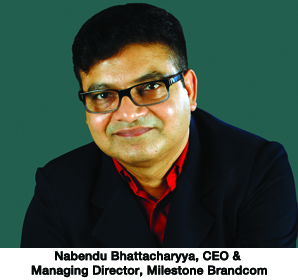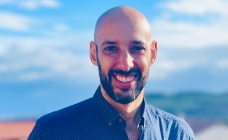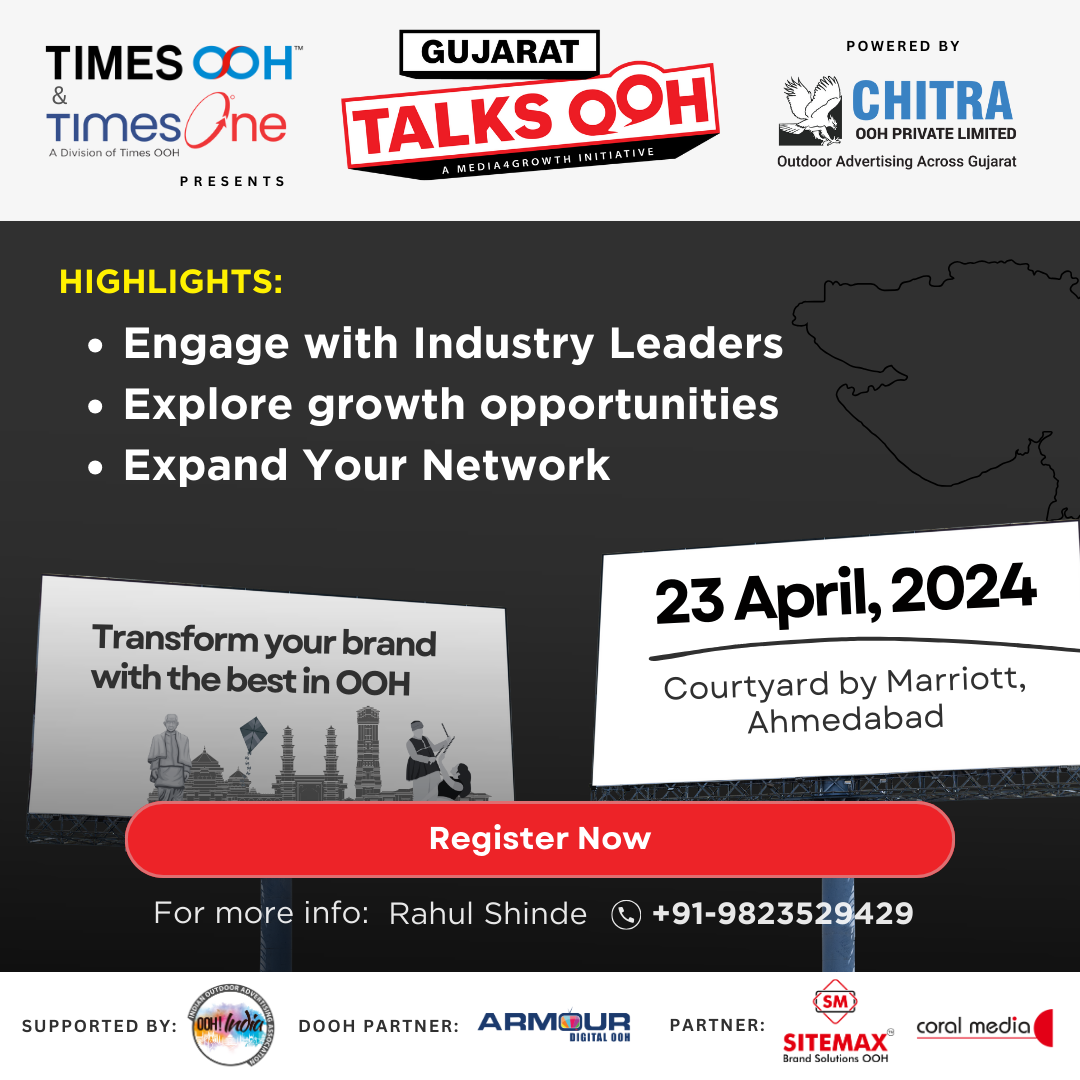Home » Viewpoints » Equity financing of OOH business - meeting challenges headon
Equity financing of OOH business - meeting challenges headon
By M4G Bureau - August 05, 2015
Nabendu Bhattacharyya, CEO & Managing Director, Milestone Brandcom, recounts his entrepreneurial journey and the myriad challenges that he tackled while attracting investor attention
 Early stage financing of start-up businesses gained significant momentum in India at the turn of the Millennium with VC/PE funds and angel investors throwing their weight behind potentially big business ideas, many of which originated in the technology space. Increasing VC/PE/angel investor interest in start-up enterprises had also stoked hopes among many young OOH firms in the country of the likely prospects of attracting equity investments for business growth. But, the scripts did not go as per expectation, as the investors preferred to channel their funds into businesses that crafted defined products for markets with built-in scalability.
Early stage financing of start-up businesses gained significant momentum in India at the turn of the Millennium with VC/PE funds and angel investors throwing their weight behind potentially big business ideas, many of which originated in the technology space. Increasing VC/PE/angel investor interest in start-up enterprises had also stoked hopes among many young OOH firms in the country of the likely prospects of attracting equity investments for business growth. But, the scripts did not go as per expectation, as the investors preferred to channel their funds into businesses that crafted defined products for markets with built-in scalability.Hence, when I ventured out with my team to set up a specialist OOH agency by the name Milestone Brandcom towards the close of 2009, there was rather limited scope of attracting equity investments into my business. Reasons were aplenty.
At the very outset, the business sentiment was low, weighed down by the worldwide economic slowdown. Moreover, no known investor had ventured into the OOH specialist business segment with any measure of success. The general refrain was, why invest in agency businesses that do not develop any tangible assets.
Given that there were hardly any value-added offerings from the OOH specialist agencies, investors saw little value in backing largely commoditised enterprises that operated on thin margins. In the circumstances, scalability of business seemed a far-fetched prospect.
Commoditised businesses by nature were less inclined to adopt new technologies, whereas it was evident to the investors that accelerated growth of any business would hinge on its capacity to usher in technologies that facilitated scalability of operations and reach.
That being the case, VC/PE funds - most of which were investing in IT software start-ups - were loathe to back OOH firms in the belief that they will not be able to get expected IRR. The prevailing talent crunch in the OOH industry, and lack of robust research tools, monitoring mechanisms, and standard rate cards too placed the industry in dim light from the standpoint of investors.
I was advised then by a few PE spearheads that the best way to attract investments would be to look out for a strategic partner from among people known to me and who are from the OOH business, instead of pursuing any financial investors.
I had fortunately built up enough goodwill among key decision-makers and entities during my professional career, and so was approached by a reasonable number of people who evinced keen interest to be a strategic partner in my venture. In fact, as a team we never had any bad blood with our organisations, employers and colleagues, and they extended great help in terms of mentoring and by referring us to potential clients.
While it was gratifying to see that kind of interest in my business, I was firm in deciding that I would not dilute more than 26% stake in my company and that no external person or entity will have a say in the management and day-to-day operations of Milestone Brandcom.
With this in mind I reached out to clients whom I had known, friends in PE circles, and successful entrepreneurs to find a financial partner who could act as strategic partner too, and eventually entered into deep discussions with two PE investors - one, a big name to reckon with, and the other, a relatively smaller player. I opted to the go with the smaller player despite a lower valuation being accorded to my business. Thus, Bay Capital became our strategic partner - with no role in Milestone Brandcom's day-to-day operations.
It is pertinent note that VC/PE investors tend to look at founder promoters' skin in the game, namely, how much they have invested in the business. They also evaluate the business plan, cost controls and cash flow management - which are extremely critical for a sound business foundation. Importantly, the founder promoters' salary levels have to be kept to the minimum to prevent any capital erosion within the organisation.
You just might wonder why we went with Bay Capital - formed by three professionals who had moved out of Kotak to leverage their relationships with HNIs to invest in promising businesses. One, they had a huge hunger for growth and I expected their aggression to have a good rub-off on our own business. Second, they had exposure to different businesses and would take us through innovative business modules including that of Goldman Sachs. Third, their expertise in structuring a business which we needed quite badly. Fourth, the prospect of interacting with many successful entrepreneurs through them.
I recall that from then on I was on a video call or in a meeting with potential investors every day in one city or the other. The idea being, to bring in more investors in Milestone Brandcom, along with Bay Capital.
But there were still very many challenges to be tackled. While Bay Capital had agreed to give us seed capital through HNI Investors whom I personally had to convince with regard to the business idea, it took nearly 12 months for the entire fund to reach us and to conclude the shareholding agreement. By then, Milestone Brandcom had crossed the Rs 100-crore turnover level.
I should add that all through Bay Capital was a huge source of encouragement for us, and the initial funding that came from them was valuable. They trusted us and did not interfere in our business decisions, and we delivered double of their expectations in a limited period. However, their contacts could not get us business, contrary to my expectations.
On the whole, I can state with certainty that the Milestone-Bay Cap partnership gave dividends to both sides in just four years and we relished the experience. Our HNI investors got much more IRR than they received from any other business in which they had invested.
In the early stage of our venture itself we laid emphasis on attracting the right talent into our business and develop a product-based focus in our Vision. While the five members of our core founding team had worked with Ogilvy, we decided to bring in a few people from other agencies - so as to get a clear sense of cultures in other organisations, as well as freshers imbued with good common sense and thereby create a Vision which was a shared vision for the initial composition of 12 core members.
The central idea that I had in view was to keep the team small and nimble - highly responsive to the emerging growth opportunities. I also got a few of our clients and friends to act as mentors to my team.
My brief to the team was simple and direct - 'Challenge the status quo in OOH business' and deliver great value to clients in all facets of engagements. At the same time, every team member was called upon to maintain the highest standards of integrity and transparency across all functions -- planning, monitoring, finance and MIS. We did not budge from our intent to be transparent in our dealings with every stakeholder in the business. Within our organisation too we insisted upon transparent practices that encouraged innovative thinking instead of following a rigid, hierarchical set-up.
We challenged the status quo in the OOH business by addressing our media partners' burning issues that exist in the industry, issuing POs in time to our media partners , and ensuring that their payments were made efficiently.
Lack of a common currency has been the bane of OOH business in India. To circumvent this problem, we invested a considerable amount on data collection and analysis, research and planning tools - such that they can be applied across markets in India. We wanted a headstart in these areas, considering that some of the larger OOH entities had barely moved in this direction. The product focus in our business was thus taking a definitive shape.
We also addressed the issue of accountability in OOH business by instituting real-time digitised monitoring systems. We followed the highest standard of compliance and recruited Deloitte as our external auditor; our only goal was to build an organisation with the highest standards in every department.
For the initiatives that we took toward creating a highly professional and responsible organisation, we achieved great recognition and accolades from different quarters. To illustrate this, Milestone Brandcom won the highest honour - Gold - at Goa Fest in different categories through the creative work of our young team - they challenged the big creative daddies and won handsomely. We won the'Creative and Media Agency of the Year' award at the E4M event in two consecutive years.
I must say that for all the upsides that we assiduously achieved in our business, the journey was not always smooth. There were many a bumpy ride - more so with competition waiting to trip us at any point. But we stayed focused on our goal and destination and that reflects in our business to this day.
Having come that far in business we decided to dilute our equity in Milestone Brandcom to a large entity - which attracted the attention of two big players. Eventually, we diluted our stake to Dentsu Aegis Network, a development that is well known to the industry.
I wanted to partner with a Group, that is, Dentsu Aegis Network, that would allow us independence in our day-to-day operations and yet give us due support to realise our future dream. It is now a year since Dentsu Aegis Network invested in our firm and I can state emphatically that we have found a perfect partner who gives us valuable knowledge inputs and guidance coming from their global thinking. Dentsu Aegis Network promotes an entrepreneurial spirit among all its partners, so partnering them is a dream come true for any entrepreneur.
Now, what we our learnings from this abiding entrepreneurial journey?
First, if one has an entrepreneurial bent of mind, first focus upon building a strong organisation with a soul, and only then venture out to engage clients, generate revenues and create wealth.
Second, be prepared to make certain personal sacrifices in the interest of your organisation and the people who work for you.
Third, gear up for a lot of hard work - not just smart work. I have worked for 20 hours every day for a good three years to arrive at this stage of my entrepreneurial journey, and still make sure that I am in office by 9:30 in the morning.
Fourth, value your people like you do your business. People can make or break your business.
Fifth, create a good value system for your organisation, and be transparent in your dealings with all.
Sixth, be accessible to all the people engaged with you - both within and outside your enterprise always before and after achieving success.
Consciously take the right path and right decisions, and success will come your way with consummate ease. Remember, investors respect organisations that enjoy a high level of trust among their stakeholders.

Stay on top of OOH media trends
Advertisement







